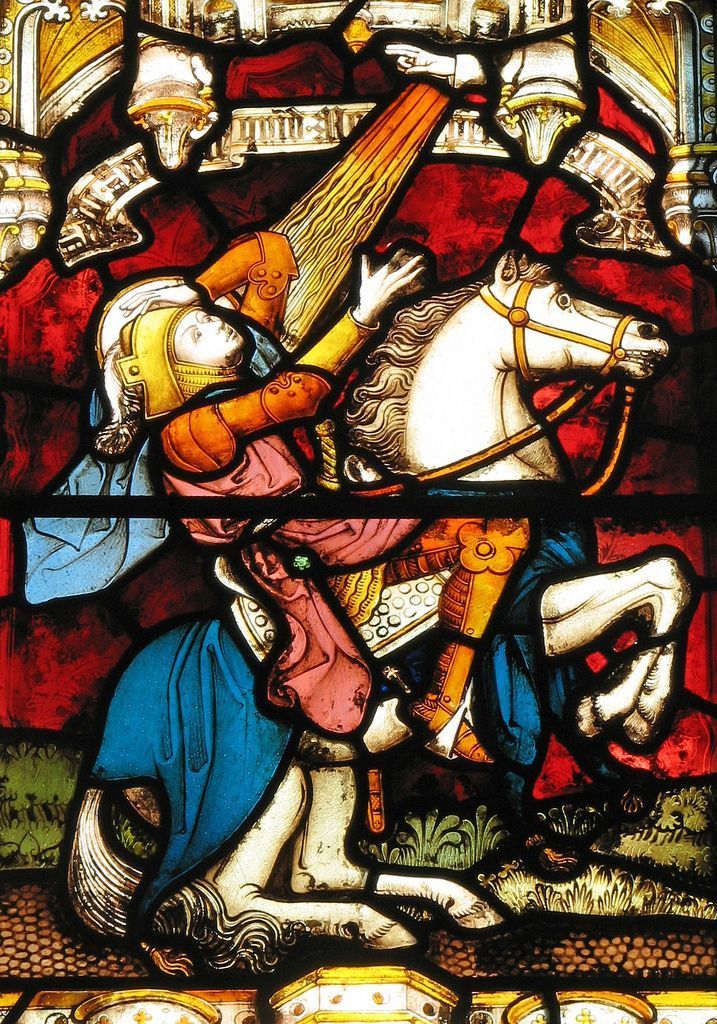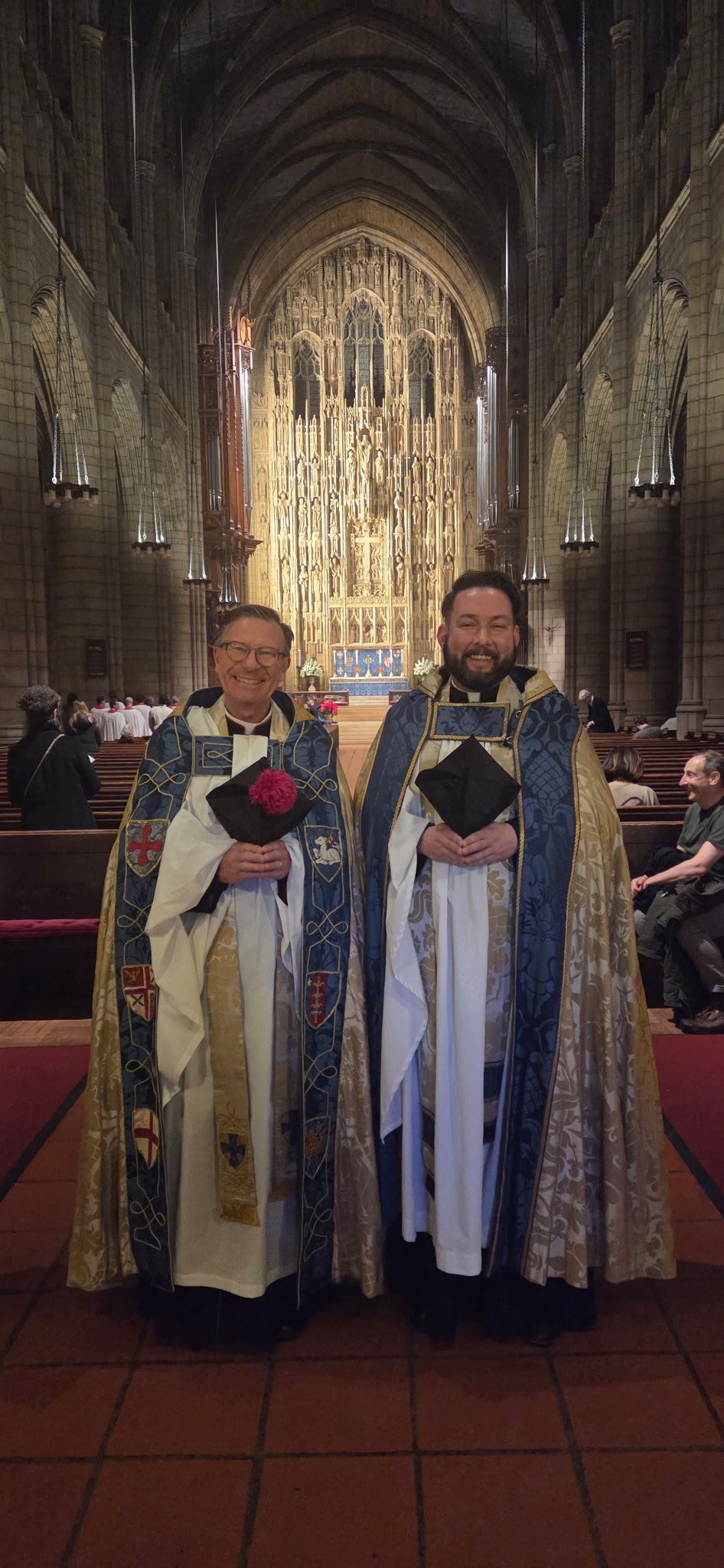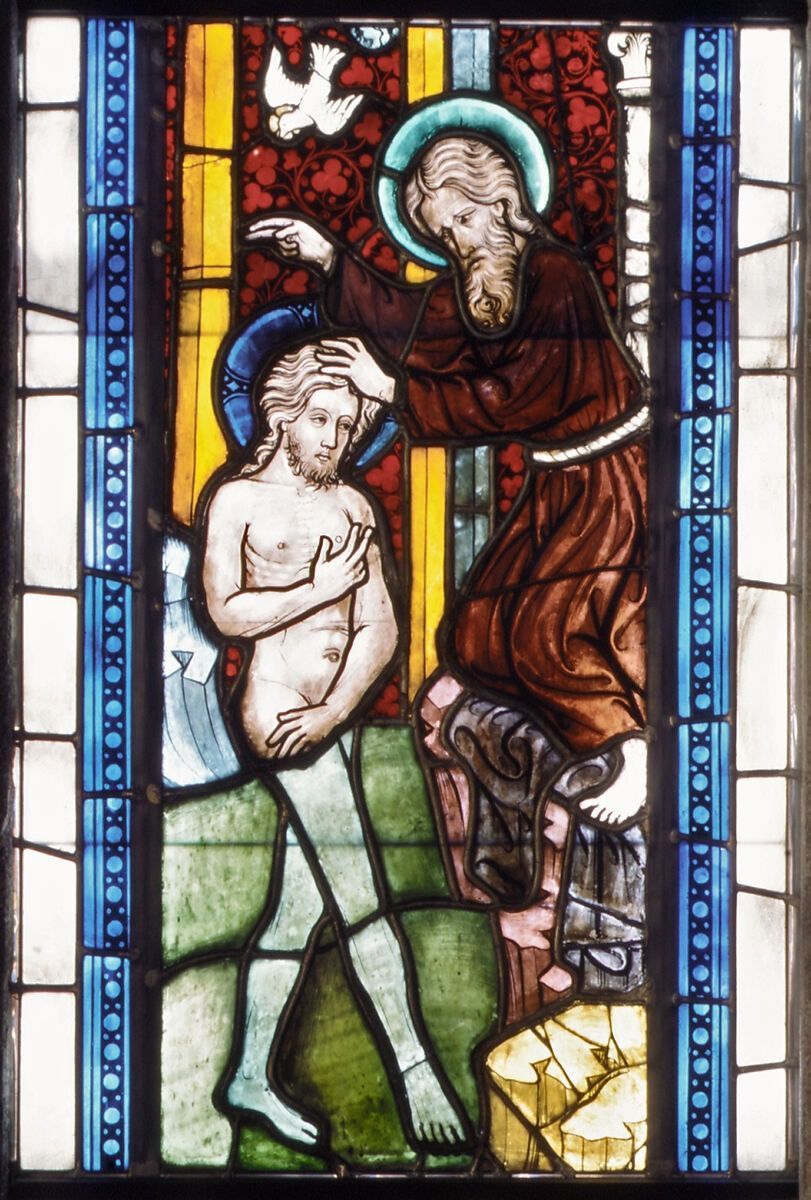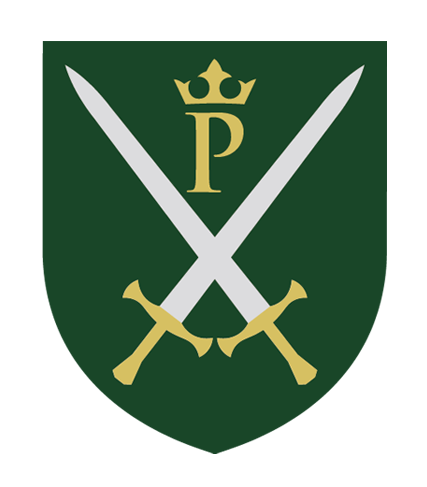A Spotter's Guide to Kings
Rev. Michael J.V. Clark • November 23, 2025
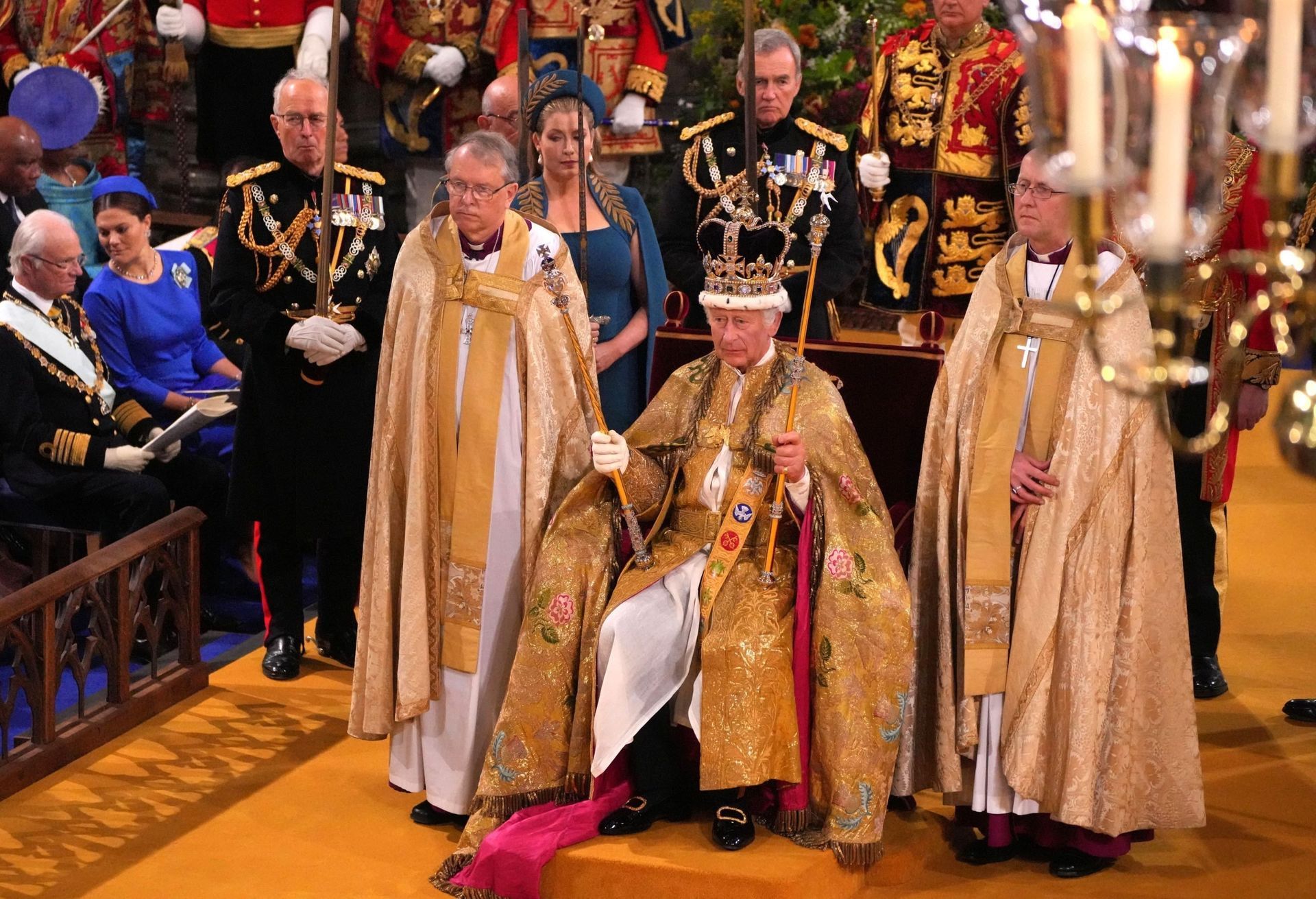
When I was a boy, the tire manufacturer, Michelin used to publish little I-spy books that awarded points for spotting things. So today, I want to give you the Spotter’s Guide to Kings, since it’s the Feast of Christ the King.
How do you know if you’re looking at a king? What is the feature that defines them? And even if we can recognize human kings, why do we need to say this of God? Why is it important that we acknowledge our Lord and Savior as a king? Isn’t it sufficient for him to be God? Why do we need to add something else? Well, let’s go to the source. Our Lord was asked this question directly by Pontius Pilate, and he answered it:
"My kingdom is not of this world. If my kingdom were of this world, my servants would have been fighting, that I might not be delivered over to the Jews. But my kingdom is not from the world.”
Then Pilate said to him, “So you are a king?” Jesus answered, “You say that I am a king. For this purpose I was born and for this purpose I have come into the world—to bear witness to the truth.
John 18:33-37
Kingship is central to the charge against Jesus. The title over the Cross explained to everyone who witnessed it the reason why he hung there, in Hebrew, Greek, and Latin: יֵשׁוּעַ הַנּוֹצְרִי מֶלֶךְ הַיְּהוּדִים Yeshua haNotzri Melech haYehudim. Jesus the Nazarene; King of the Jews. So, if the Lord, the Anointed One, does not respond to Pilate, oh no, I’m not a king, I like republics - we need to know why. And particularly in this week, where we come together to celebrate Thanksgiving, that great feast of American identity, it is good to remember that while earthly republics can readily be considered the best form of government yet devised, Heaven itself is an absolute monarchy, and our destiny is to be happy subjects of the King of kings.
Having lived in the United States for nearly a decade, I have noticed that to call someone a king is to throw around quite a heated word. It is politically charged, and I need not dwell too long on that. But it is worth pausing to reflect on the irony, as Christians that whenever we disapprove of the exercise of authority over us, rather than use the word despot, or tyrant, we choose the word: king.
As Catholics, we need to rehabilitate this word if we are to embrace the idea of Christ as King. By no means in using it are we suggesting that our Lord claiming kingship is license to be in someway despotic or tyrannical. But if we don’t do the intellectual heavy lifting of discerning the positive aspects of kingship, then this feast day becomes, at best, a pageant. We would call Christ a king in a superficial way, and most importantly in a way that does not demand our obedience: It must not become a ‘Disney’ feast (if you will pardon the image) for a claim we don’t take seriously.
Here’s where I can help. I am the subject His Majesty King Charles III. I am not a citizen of any country at all. As such, perhaps, I have an advantage on this feast day. The idea of kingship, for me, is a lived experience, and thus accepting Christ as King helps me to understand how I relate to my own monarch. His Majesty’s kingship is temporal, and delegated from God. Christ’s kingship is eternal, and proper to himself.
A very astute American priest I know once preached a sermon to my seminary, the Venerable English College, on this very feast. He pointed out how we were probably unaware of how much kingship invades our everyday life as British subjects. He noted the monarch’s silhouette on the postage stamps, the currency, and the Royal Crest on everything from passports to police stations to military, and even (by way of the Royal Appointment system) on condiments and other treats. He’s right! And we Brits don’t often notice it, because it is so familiar.
But one thing my priest friend did not observe was that he was talking to seminarians of a college established 500 years previously as a direct response to the interference of a despotic and tyrannical king against the liberties of Christ’s Holy Church. I am talking of course of King Henry VIII, of unhappy memory. But whilst said students are no longer treated as traitors by the Crown, and indeed have the Royal Crest of his descendants on their passports, they also have in our possession the collarbones, vertebrae, and ribs of 44 priests who were prepared to defy the earthly reign of this wicked man and his bloodthirsty daughter, in favor of the heavenly reign of Christ the King.
To be a Catholic cost them their lives, but won them a much more valuable crown: namely, that of martyrdom. A crown so-called not in imitation of a hereditary ruler, but because it binds the wearer the the diadem of thorns worn by the one who wears it by right. Believe me, it truly brings it home to possess the relics of young men who wondered the same same hallways and staircases as you, and whose signatures are inscribed on the first page of a noble Red Book that also contains your own. As a British subject, and a Catholic, our relationship with the Crown is more nuanced, let’s say.
So what of our Spotter’s Guide to Kings? Well here’s the first clue:
1. Kings do not need your permission to have authority over you.
“The king has his crown from God, not from the people; therefore he is answerable to God alone for the use of it.”
So said the cardinal martyr, St. John Fisher of the king who was to sever head from neck. The nature of kingship derives from their authority, which is not bestowed by the consent of anyone. This means, in humans terms, kings can be good, or bad, depending on whether they take seriously the fact that they will answer to God for their deeds. For his part, God is holy, and therefore whilst he doesn’t need your consent, he will never exercise this authority in any other way than for your good.
2. Kings have authority over everyone in their realm
To be a true king, this authority bears no exceptions. The same is true of God. God is not God because you or I approve of him. He is God whether we approve or not, and we are in his realm whether we like it or not. The distinction with his kingship is his realm has no bounds - we call him the King of the Universe, over everything visible and invisible. As we see from the Scriptures, even the demons are his subjects – unwilling subjects, to be sure, but subjects all the same.
3. Kings are born, not elected.
The Lord says: “for this purpose I was born” and we can see that kingship is bestowed by hereditary principle. This is perhaps where the idea diverges from what we think is right. But the reason our gut feeling resists the hereditary principle is because of our experience of bad kings - an experience that is part of our American DNA. The Lord cannot be a bad king, and the hereditary principle is appropriate for him because, unlike a human monarch, there is unity between the one who bestows the crown, and the one upon whom the crown is bestowed: “I and the Father are one” says the Lord.
4. Kings are identifiable by their attributes
Kings have regalia - which are physical items that signify their royal status: a crown, because they are anointed; orb and scepter because they have power; and purple robes, because they are treated with dignity. Our Lord’s crown is made of thorns, his orb is the world, and his scepter a reed. The purple robe is colored with his blood, poured out not in a display of military might, but of saving service.
5. Kings are given obeisance
Courtiers, even today, will often speak of ‘The Presence’ - being in the King’s presence means we behave differently. The Presence is acknowledged by the bending of a knee, or at very least the bow of a head. If we do this of human monarchs, how much more should we bend the knee before the true presence of the King of kings? You come into his court every time you enter this building, which is the Tabernacle of His Presence. So if a courtier in London bows low before an earthly king who will die one day, what is the only fitting posture for us before the undying King who truly dwells among us?
So there you have it: your very own Spotter’s Guide to Kings. Next time you see a crown of thorns, a reed, a purple cloak stained red, or even a Host, raised in silence, above an altar - tick the box. You’ve spotted Him.
Now get on your knees.
Recent Posts





